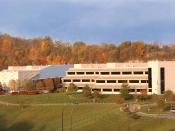AbstractFor the past decade rehabilitation has been the missing element in the criminal justice system. Our president declared a War on Drugs and in a war we don't consider what to do with those taken prisoner. Much like prisoners the offender has been caught in a system that only punished and released. Little thought and money was diverted into making that individual a part of society or helping them with their addiction. But it appears; with the advent of problem solving court's justice is coming full circle. Specialty courts such as Drug court have begun to emerge as criminal justice's new technique to rehabilitate offenders.
IntroductionThroughout the years many major policy initiatives and programs have been endorsed in the war against illicit drugs. These have included: antidrug legislation and strict enforcement, interdiction, antidrug education and treatment, none of these has seemed to turn the tide against the abuse of illegal drugs in society.
What these initiatives and programs lacked was a cooperative effort from all the key players in the criminal justice system and an integration of other services within the local community. Thus, a therapeutic movement has begun to emerge in the criminal justice field. During the past decade two major trends have made a powerful impact on law enforcement efforts to confront drug issues in their communities. The institutionalization of community policing, along with the rapid almost contagious development of specialty courts, ie DWI court, domestic violence courts and drug courts, suggest a whole new way for doing business in the criminal justice system. Drug court programs really began to flourish in the 1990's as a local response to increasing numbers of drug related cases and expanding jail and prison populations. These programs were designed to use a courts authority to reduce crime by changing defendant's substance...


